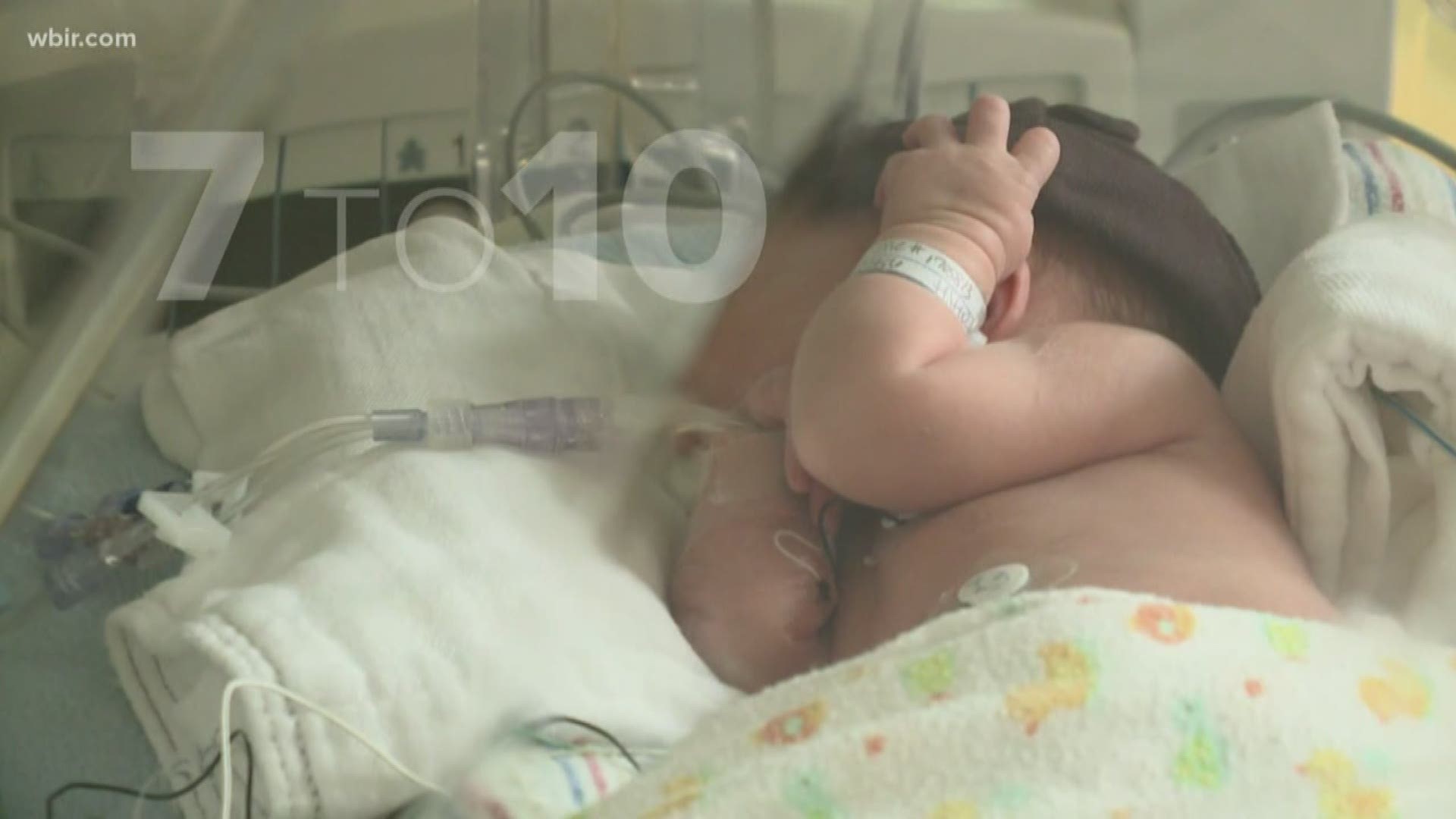KNOXVILLE, Tenn. — RSV cases are on the rise in East Tennessee. This comes during its peak season.
East Tennessee Children's Hospital has seen 266 cases of the respiratory disease since October. 100 of those occurred between December 30 and January 5.
RSV is similar to a common cold in adults, but more serious in young children, especially under the age of two. Not all cases in infants require a trip to the hospital, but cases could be more severe in infants less than 12 months old, those born premature or those with underlying problems like asthma or lung disease.
Pediatricians with ETCH said severe signs to look out for include a thick nasal discharge, dehydration where their mouth, nose or eyes are dry and sunken in and they have a hard time taking in water. A third sign is having trouble breathing or breathing rapidly.
"You can see them pulling in the neck, their chest muscles pulling to breath, their nose flaring trying to get oxygen into their lungs. If you see any of those signs, that's concerning and would need to be seen in the emergency room," said pediatrician Shannon Cohen.
If you see these signs pediatricians say to take your infant to the hospital.
There are no antibiotics to treat RSV, but hospitals have the ability to provide supportive care and make sure symptoms don't worsen. The course of severe symptoms can last for seven to ten days, but cough or respiratory symptoms can linger for up to three weeks.
"It can be very trying for the child and families... a very difficult illness and so we try to prevent it as much as possible. Every year is different. Some years will be a little bit milder where we wont have as many cases, some we'll have more cases and they'll be more severe. It just varies year to year," said Cohen.
To prevent your child from being infected, pediatricians recommend staying home if you can during this peak season. If you have to go out they recommend keeping them covered up so people cannot touch them. Lastly, they recommend practicing good hygiene by washing your hands and making sure younger children around your child, like siblings, are doing the same.

